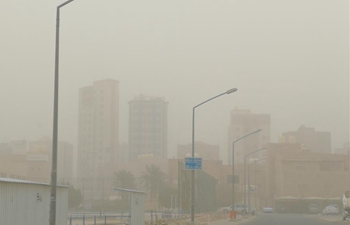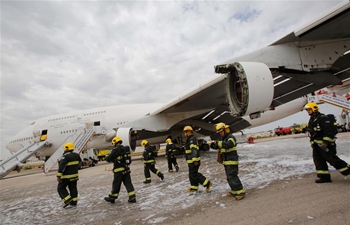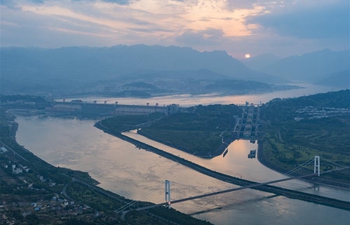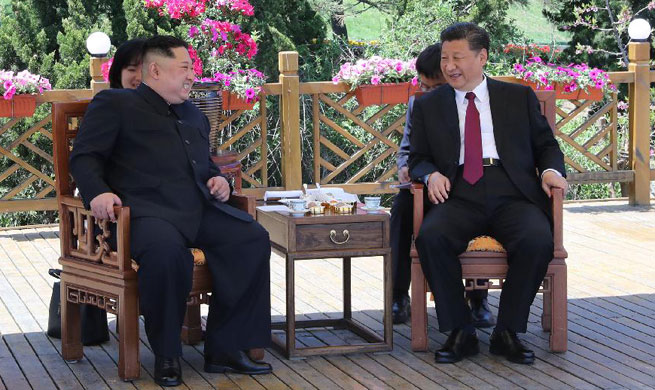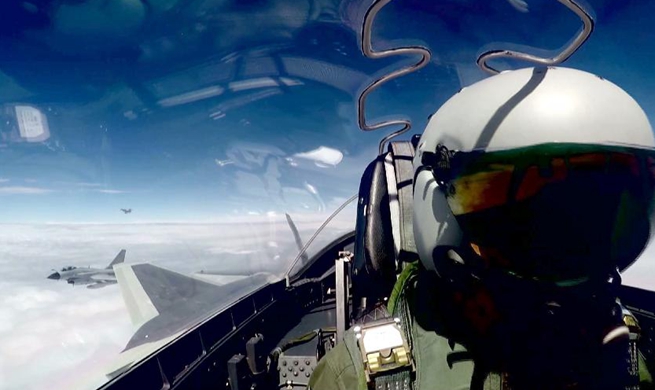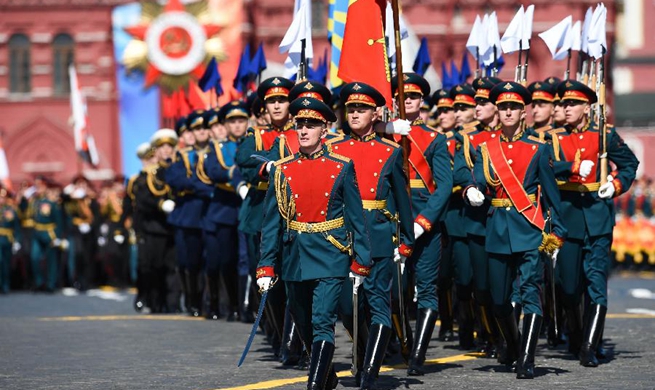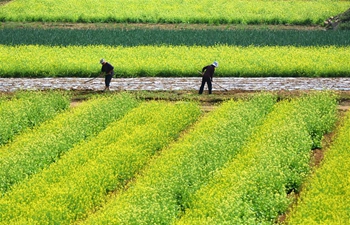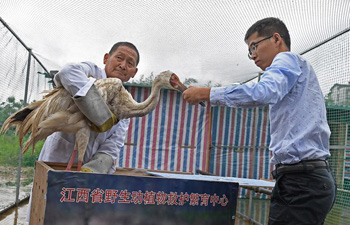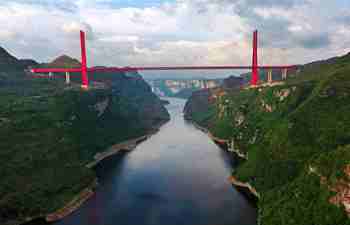ADEN, Yemen, May 9 (Xinhua) -- The situation in Yemen continues to worsen as a result of the ongoing military escalation, fragmentation of internal allies, widening gap between local factions and complicated agendas and strategies of regional and international players.
Nabil Albukiri, a researcher in international strategies, said the U.S. withdrawal from the Iran nuclear deal and decision to restore sanctions on Iran will be reflected on all files in the region including the situation in Yemen.
"Iran is a backer of Houthi rebels in Yemen. It will now start an open war through sending more weapons including missiles to the group. In response, the U.S. and its allies or proxies including the UAE and Saudi Arabia will push further their military action against the group," he elaborated.
On Wednesday morning, Houthi rebels launched several ballistic missiles at Saudi capital Riyadh.
However, the EU members that remain committed to the Iran nuclear deal could put pressure on Iran to stop sending weapons to the Houthis, Adil Al-Shuja'a, a politics professor at Sanaa University, said.
"But the EU role will not be that important as the U.S. remains the main player here," Al-Shuja'a added.
On the other hand, recent tensions between the internationally recognized government of Yemen and the UAE, one of the key member states of the Saudi-led coalition which has been backing the government, brought out a real crisis between the government and its regional backers.
So far, the government and the UAE have reached a deal sponsored by Saudi Arabia ending the tensions over Socotra archipelago which was lately taken over by UAE forces.
But observers argued that the deal was just a temporary solution for a deepening crisis with the coalition.
Abbas Aldhaleai, a political commentator, said the tensions between the Yemeni government and the UAE are not marginal and emotional.
"The UAE is acting like it is the owner of the Yemeni land. It has been ignoring the government in all issues, let alone forming and supporting factions and forces that don't recognize the government including the southern security belt forces that are seeking separation, forces loyal to the former president and Salafi Jihadists in some regions," Aldhaleai said.
"The UAE is a U.S. proxy seeking to control strategic Yemeni islands and ports, an ambition which can trigger tensions with the government at anytime. This Gulf state has been prolonging war under the pretext of a war of attrition and tightening the blockade on areas run by the Houthi group in order to force people to rise against this group," he said. "But that has only been deepening the crisis in Yemen."
Recently, three ministers in the government of President Hadi said the disagreements with the UAE are deepening and that the UAE has been preventing Hadi from coming back to Yemen.
Yaseen Al-Tamimi, a political writer, said the future relationship between the government and the member states of the Saudi-led coalition will be so fragile and that will be reflected on the course of the war and mutual goals on top of which is defeating the Houthis.
"It is true the two sides are trying to show restraint and focus on the military campaign against the Houthis, but actions of some members of the coalition are provoking the government," Al-Tamimi said.
After the UAE forces took over Socotra, the government said in a statement that the UAE has violated Yemen's sovereignty.
"When the disagreements focus on sovereignty, that actually means the relationship between the Yemeni government and the Saudi-led coalition, not only the UAE, is about to break down," he said.
"And if it breaks down, the country will sink in an endless chaos and all achievements will be in vain," Al-Tamimi said.




